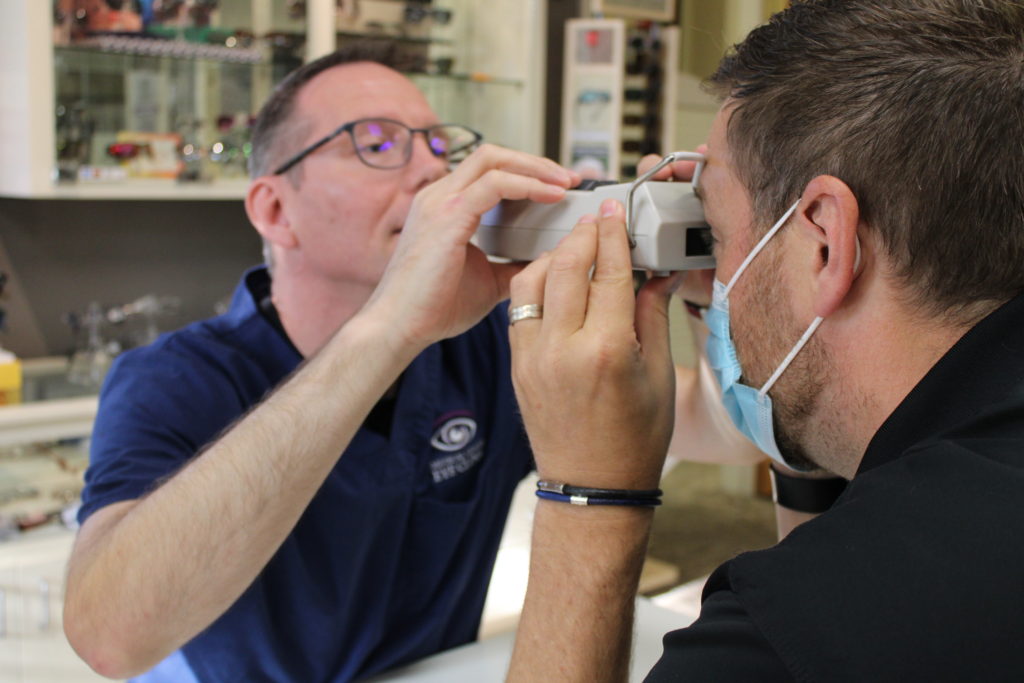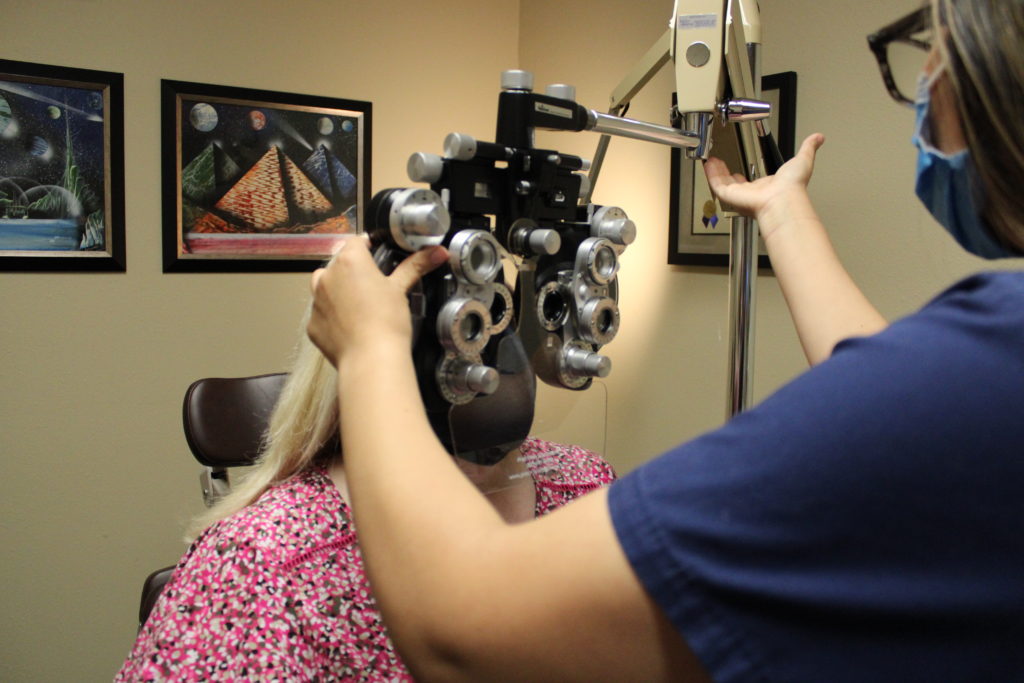
- THE EYE DOCTOR'S TAKE ON -
Dry Eye Treatment
At our vision center in Salem, we believe that clear vision and ocular surface comfort starts with a healthy tear film. When disease occurs your eye care provider can diagnose, educate and discuss with you the treatment options to improve the overall health, comfort and clarity of vision affected by dry eye disease.
Medical Center Eye Clinic is proud to be a certified Dry Eye Center of Excellence. Our team is dedicated to taking the time and using every resource at our disposal to create a treatment plan specific to each individual’s needs.
How do you develop Dry Eye?
The tear film is a complex arrangement of mucous, water, and oil with a mixture of immune proteins that bathe the eye. The function of the tear film is to nourish and protect the underlying ocular surface while maintaining comfortable, clear vision. It is the balance between structure and function that allows this concert to play out unconsciously. Many internal and external influences can disrupt this process and cause disease.
A common condition, dry eye syndrome occurs either when the eyes fail to produce adequate tears or when the tears evaporate too quickly. Chronic dry eye syndrome can lead to a decreased quality of vision and in the most severe cases may cause irreversible damage.
- Types of Dry Eye
- Causes of Dry Eye
- Dry Eye Symptoms
- Aqueous Tear deficiency: This occurs when the tear-producing glands produce an insufficient amount of the watery component of normal tears;
- Evaporative Dry Eyes: This happens when normal tears evaporate too quickly; it can be due to eyelid abnormalities that expose the eye to the environment, or inflammation on the ocular surface or of the oil-producing glands in the eyelid;
- A combination of these two types, with the possibility of mucin deficiency that prevents the tear film from adhering properly to the cornea.
- Systemic inflammatory disorders, such as rheumatoid arthritis;
- Certain systemic and ocular medications, such as glaucoma drops;
- Eyelid abnormalities, such as thyroid eye disease or Bell’s palsy;
- Certain eye surgeries.
Dry eye can cause symptoms that include the following:
- Burning, stinging, outright pain;
- gritty feeling or any type of foreign body sensation;
- tearing-paradoxically caused by the roughened surface of the eye stimulating the body to secrete more tears;
- blurred vision;
- heavy feeling eyelids;
- contact lens intolerance;
- eye fatigue, especially with reading.
Dry eye syndrome is very common, but can be caused by many different processes. If left untreated, it can decrease the quality of vision and quality of life. However, with a careful examination and tailored treatment regimen, dry eyes can be effectively managed.
Risk Factors for Dry Eye
People who a have a history of systemic inflammatory disease such as diabetes, thyroid disease, rheumatoid or auto-immune disease have increased ocular surface inflammatory mediators that promote dry eyes.
Finally, medications have the potential to dry out mucous membranes and the eyes are not immune. Any medication that dries out the mouth will also dry out the nose and eyes. Some of the biggest offenders are pain medication, allergy medication, certain types of high blood pressure medication, psychiatric and seizure medication. Moreover, patients undergoing or who have recently undergone systemic chemotherapy are at particular risk for dry eyes.
Ocular anatomy and physiology is crucial to the health of the tear film and needs to be evaluated for its role in dry eyes. Furthermore, eyelid, or any ocular surface surgery that disrupts the normal distribution of the tear film can result in dry eye symptoms.
The good news is there are treatments available to help. Often, treatment is not straight forward and therefore an individualized treatment plan that includes lifestyle modification, over the counter products, prescription medicine or even interventional therapy should be utilized for successful treatment.
If you suffer from the symptoms of dry eyes and are frustrated with the lack of attention and success of past treatments please come see any of the board certified ophthalmologist located at Medical Center Eye Clinic for a consultation.


